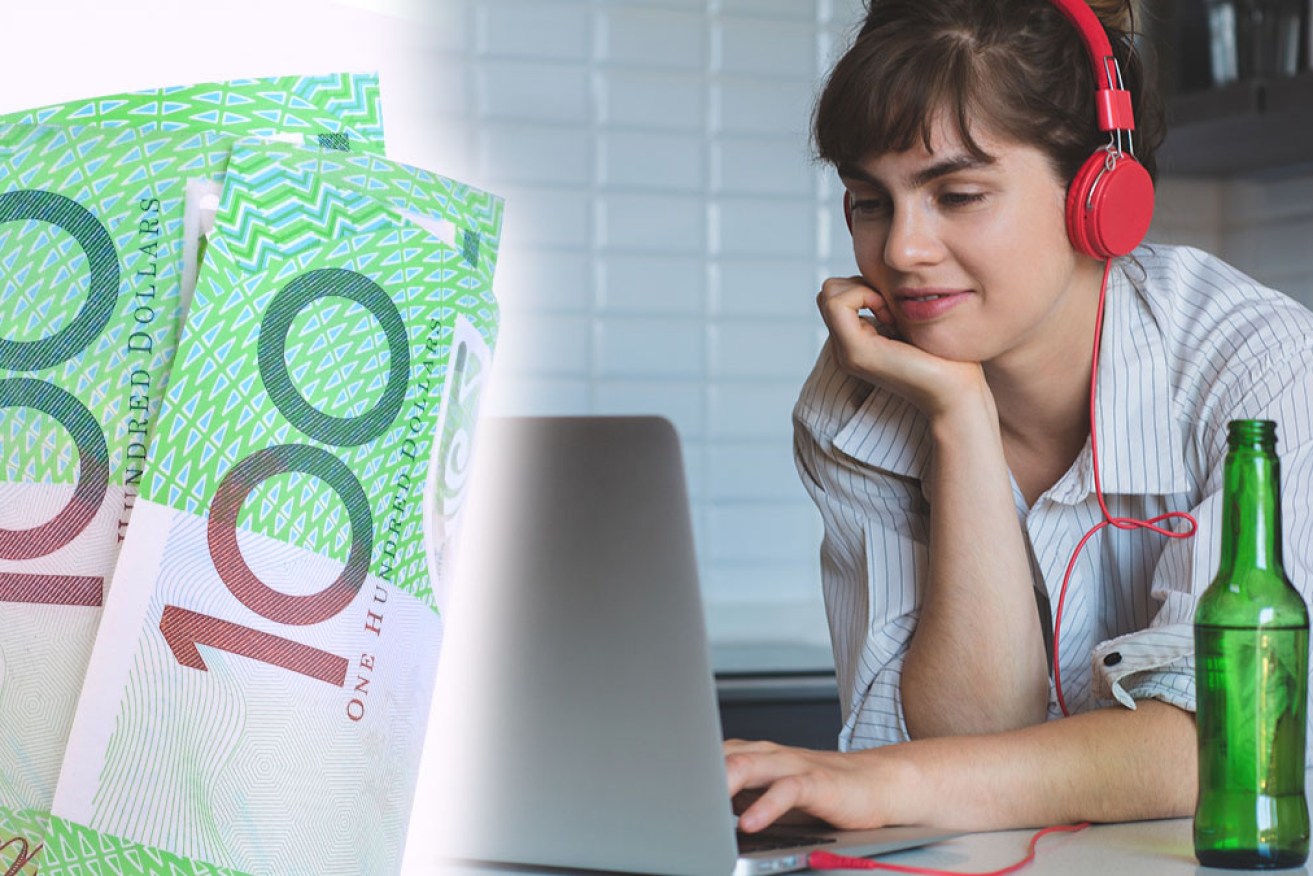The COVID lockdown habits that are costing Australians hundreds of dollars a month


Consumption of alcohol has risen during the pandemic, and bad habits can be hard to break. Photo: TND
Australians have increasingly turned to alcohol to mitigate stress caused by the pandemic with their newly formed habits costing hundreds of dollars a month, according to a leading foundation.
However, psychologists say those who only upped their intake through lockdowns should find the newfound indulgence easier to kick, compared to those with years-long habits.
Australia’s latest GDP figures, released on Wednesday, found spending on alcohol spiked 12.7 per cent to $540 million in the June quarter – the highest figure on record.
That could partially be explained by falls in the amount Australians spent at bars, cafes and restaurants (those figures plummeted more than half between March and June).
Concerningly, research from the Alcohol and Drug Foundation found one in five Australians have increased the amount of alcohol they drink through the pandemic.
Additional findings from the Foundation uncovered the standard person who drinks beer at home spends roughly $1440 per year on alcohol, while the standard wine drinker spends $2580 annually.
Averaging those figures on a monthly basis equates to $120 and $215 spent on alcohol in the home respectively (before additional intake outside the home is factored in).
Dr Nicole Lee, an adjunct Associate Professor at the National Drug and Alcohol Research Centre, told The New Daily that alcohol purchases historically increased in response to crises like natural disasters.
And that’s because, like the pandemic, stress and anxiety levels among the general population rise significantly, she said.
“Nowadays, it’s a response to people trying to balance work – or in many cases, not having work – family, isolation and a range of situations they’re not accustomed to,” Dr Lee said.
“So if you don’t have ways of managing or coping with stress or boredom, you’re much more likely to reach for a drink because it’s easy to make you feel relaxed.”

As Australians spent more time at home, their alcohol intake increased. Photo: Getty
Dr Lee said some studies suggest alcohol intake has risen from between 10 to 30 per cent over the six months of the pandemic.
But much of the increase can be attributed to stressors placed on women in particular, who may now have to juggle working responsibilities with childcare and housework, Dr Lee said.
“However, some people will have reduced or stopped drinking because of reduced income, so if people don’t have the money available, they tend to spend on essentials first and non-essentials second,” Dr Lee said.
National Health and Medical Research Council guidelines recommend healthy Australians drink no more than 10 standard drinks per week, with no more than four in one sitting.
Drinking not the only consumption habit to rise up
Other kinds of habit-driven consumption have also experienced an uptick through the pandemic.
Analysis by credit bureau illion and economic consultants AlphaBeta in August found gambling expenditure grew among those who withdrew superannuation under the Coalition’s early release scheme.
Men were more likely to increase their spending on gambling (up 10 per cent) while women spent marginally less (up 6 per cent).
And panic-buying behaviour – notably focused on household essentials such as toilet paper, meat, bread and pasta – saw supermarket shelves stripped bare in March, and again when Melbourne’s stage four lockdown was announced in August.
Macquarie University Associate Professor in psychology Melissa Norberg said these patterns of consumption are intrinsically linked to how the pandemic has upended Australians’ lives, with altered patterns of spending a way of offsetting fear.
Tweet from @latrobe
“It all comes back to stress and our ability to tolerate uncertainty, and we were drawn to some of these items because in a consumer-driven society, we feel more complete and safe when we hoard goods,” Professor Norberg told The New Daily.
When it comes to kicking newfound spending habits, Professor Norberg said the first step is acknowledging the stress causing them.
“Going online and doing some shopping while sipping a glass of wine is normalised in our society, but if it’s starting to cause financial distress, you need to find ways to deal with that stress,” she advised.
Dr Lee said the key is to be mindful about how these habits have become stress-coping mechanisms through the pandemic.
“It’s good practice to do something that is present every day – exercise, meditation or even a bath – that makes you feel relaxed,” Dr Lee said.








